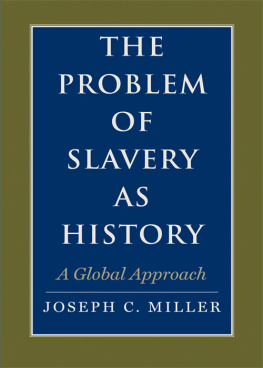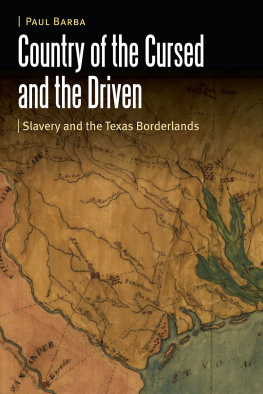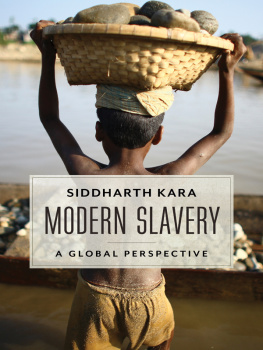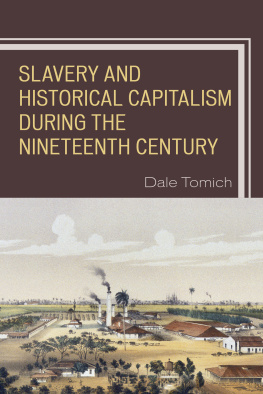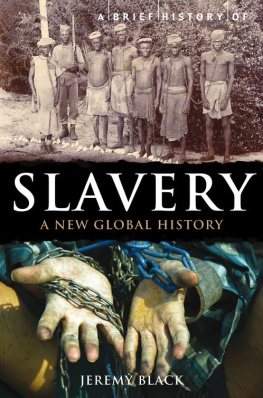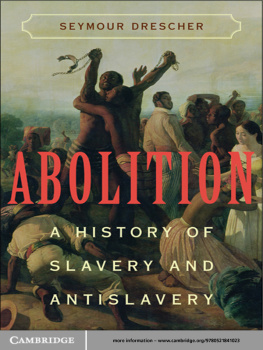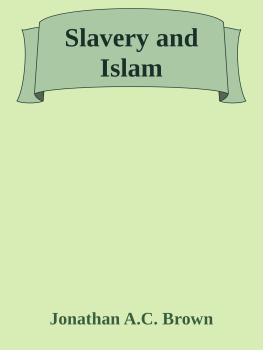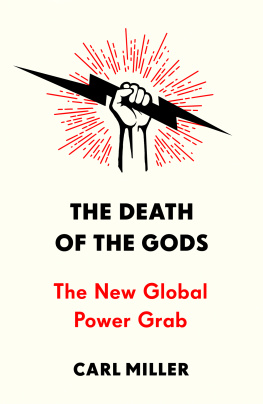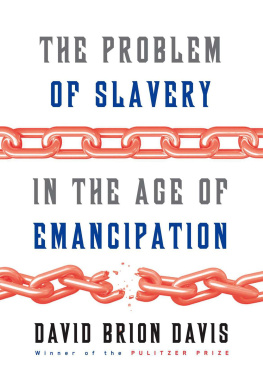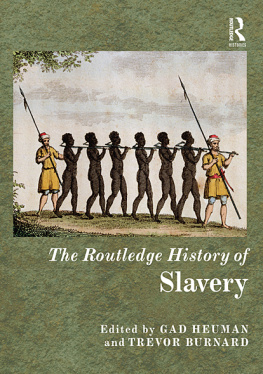

THE DAVID BRION DAVIS SERIES
Since its founding in 1998, the Gilder Lehrman Center for the Study of Slavery, Resistance, and Abolition, which is part of the MacMillan Center for International and Area Studies, has sponsored an annual international conference on major aspects of slavery, its ultimate destruction, and its legacies in America and around the world. The Center's mission is to increase knowledge of this story across time and all boundaries, and to reach out to the broader publicin schools, museums, and historic sites, and through filmmakers and general readerswhere there is a growing desire to understand race, slavery, abolition, and the extended meanings of this history over time.
In the name of David Brion Davis, the founder of the Center, Sterling Professor Emeritus at Yale, and the world's leading scholar of slavery in international perspective, we have established an occasional lecture series. A single distinguished scholar, or a group of noted writers on a subject, is invited to speak on a theme out of which we then produce an original book such as this one.
Because the research, discoveries, and narratives presented at our conferences do so much to enrich our knowledge of one of humanity's most dehumanizing institutions and its place in the founding of the modern world, as well as of the first historical movements for human rights, we are immensely grateful to Yale University Press for engaging in this joint publication venture. The Gilder Lehrman Center is supported by Richard Gilder and Lewis Lehrman, generous Yale alumni and devoted patrons of American history. The Center aspires, with Yale University Press, to offer to the broadest possible audience the best modern scholarship on a story of global and lasting significance.
David W. Blight, Class of 1954 Professor of History at Yale University, and Director, Gilder Lehrman Center for the Study of Slavery, Resistance, and Abolition

Published with assistance from the foundation established in memory of Calvin
Chapin of the Class of 1788, Yale College.
Copyright 2012 by Yale University.
All rights reserved.
This book may not be reproduced, in whole or in part, including illustrations, in any form (beyond that copying permitted by Sections 107 and 108 of the U.S. Copyright Law and except by reviewers for the public press), without written permission from the publishers.
Yale University Press books may be purchased in quantity for educational, business, or promotional use. For information, please e-mail (U.K. office).
Set in Sabon type by IDS Infotech, Ltd.
Printed in the United States of America.
ISBN: 978-0-300-11315-0 (pbk.)
Library of Congress Control Number: 2011943036
A catalogue record for this book is available from the British Library.
This paper meets the requirements of ANSI/NISO Z39.481992 (Permanence of Paper).
10 9 8 7 6 5 4 3 2 1
To Jan Vansina,
for teaching me about history and about Africa
And in memory of
Phil Curtin (19222009),
for teaching me about the world and slaving, and
insisting that I try to write cogently about it all
Contents
Preface
The chapters in this book express some of the historical insight that a recovering Africanist has gained over several decades spent learning to appreciate the epistemological core of a humanistic discipline, itself in a century-long recovery from its urgent pretensions to discern truths of a scientific, replicable order. They are therefore not an integrated global narrative of the history of slavery told in conventional terms of the institution that it is all-but-ubiquitously characterized as having been. Readers will find mentioned here only aspects of slaving relevant to understanding these practices as historical strategies rooted in times, places, cultural heritages, and momentary opportunism. With regard to slaving, the argument focuses on the recurring pattern of the principal slavers positions as marginal to the contexts in which they lived and competed. It thus adds the historical political dimension of slaving to the relatively familiar psychological, cultural, and economic aspects of the outcomes of these struggles. It stresses processes of creating slavery rather than examining features of an institution taken for granted. It emphasizes the experiences of the enslaved as isolated, betrayed, and vulnerable rather than the masters claims of absolute domination.
But the following chapters also represent, perhaps primarily, a reflection on history as process and on the experience and challenges of initiating change through time. I examine change of a particular historical sort, rooted in human experiences and motivations rather than in abstractions as commonplace as the slavery and freedom that prevail in the literature. Nor do I here attempt to cover the vast historiography of this field as such, though I will attempt to problematize some of its emblematic works in relation to the precise epistemology of history that I will develop. So these chapters, as their titles indicate, problematize slavery not as a moral issue of social exclusion or as an economic anomaly but as an illustration of the problematic limitations of the significant structuralism in the recent practice of history. I am trying to historicize the conventional narrative.
I will also spend some time distinguishing an exact practice of slaving and the experience of enslavement from the strong rhetorical overtones of injustice, inhumanity, social and political exclusion, personal abuse, and inequality that the notion of slavery carries in modern culture. Thus I need to contrast slaving, as a historical strategy, from other means of mobilizing human effort for the benefit of others, sometimes compiled into a negative category of unfree labor to contrast with modern wage labor practices now taken as normative. Slavery as an institution has also been compared extensively with race, class, and gender, all abstracted modern forms of exclusion. These debates about abstract definitions explicitly do not enter a discussion aimed to historicize slaving and enslavement as particular contextualized strategies. Nonetheless, I will comment on what I regard as the logic of these structural alternatives, by way of contrasting my historical approach to slaving, as many readers will approach this book from intellectual and cultural backgrounds that do not draw the distinctions I hope to underline.
An even greater challenge for some readers may lie in my presuming a general familiarity with the world's history. The small format of this volume severely limits my ability to provide narrative framing. So I cite widely ranging examples, though neglecting Asia and most of the Islamic world, in favor of concentrating on Africa, my own area of expertise, and the Americas, presumably the field in which most readers will have some background. The modern Americas, or rather, the antebellum United States, are the single source of the politicized epistemology of studies of slavery as an institution. I do not stop to gloss the historical contexts, and even less any sort of narrative, of the laws of slavery (or, as I argue, manumission) characterized as Roman. I sketch elements of the conventional histories of Africa and Brazil, but those do not reflect the historicized framework I want to develop here. The background necessary for readers new to these narratives would overwhelm this book's central arguments about history itself and understanding slaving as a historical strategy as a significant alternative to thinking of slavery only as an institution. I hope that the epistemological argument will provide the coherence that will be lacking as narrative history. Every chapter begins with an explication of the issues of conceptualization raised by the challenge of historicizing slaving in differing contexts chosen to highlight the patterns of slaving recurring through them all.
Next page
